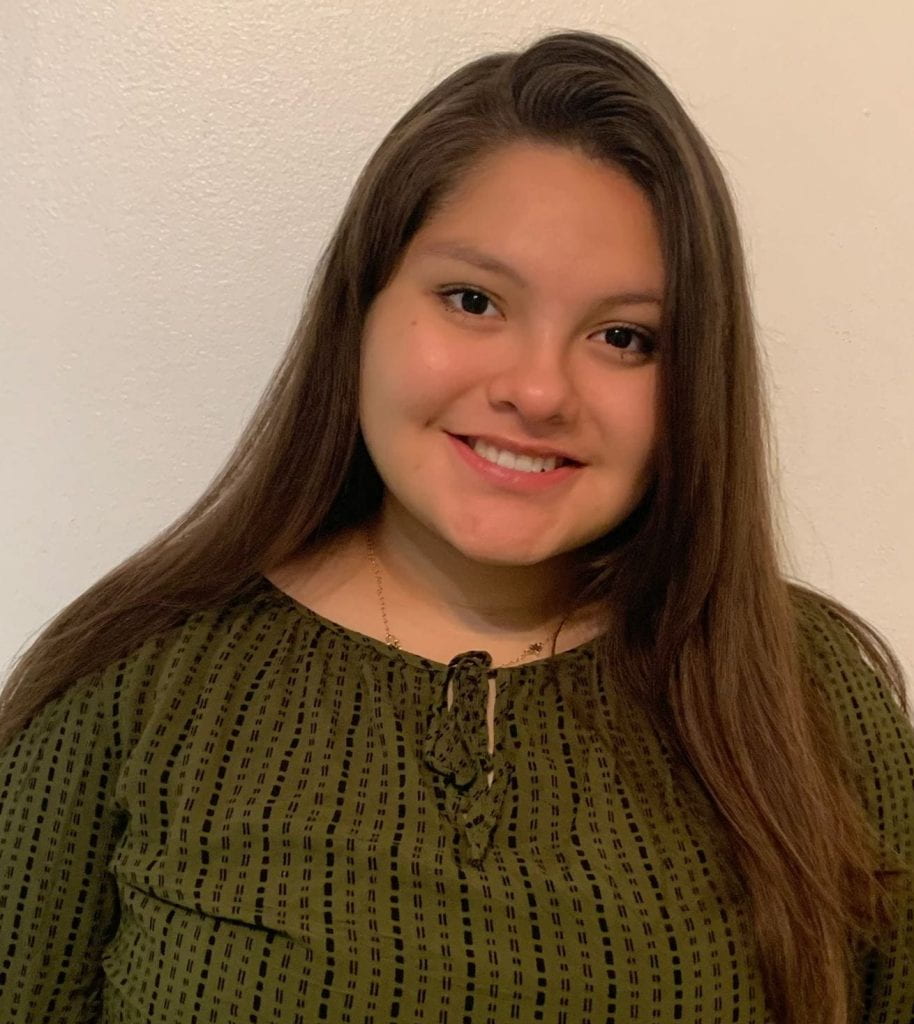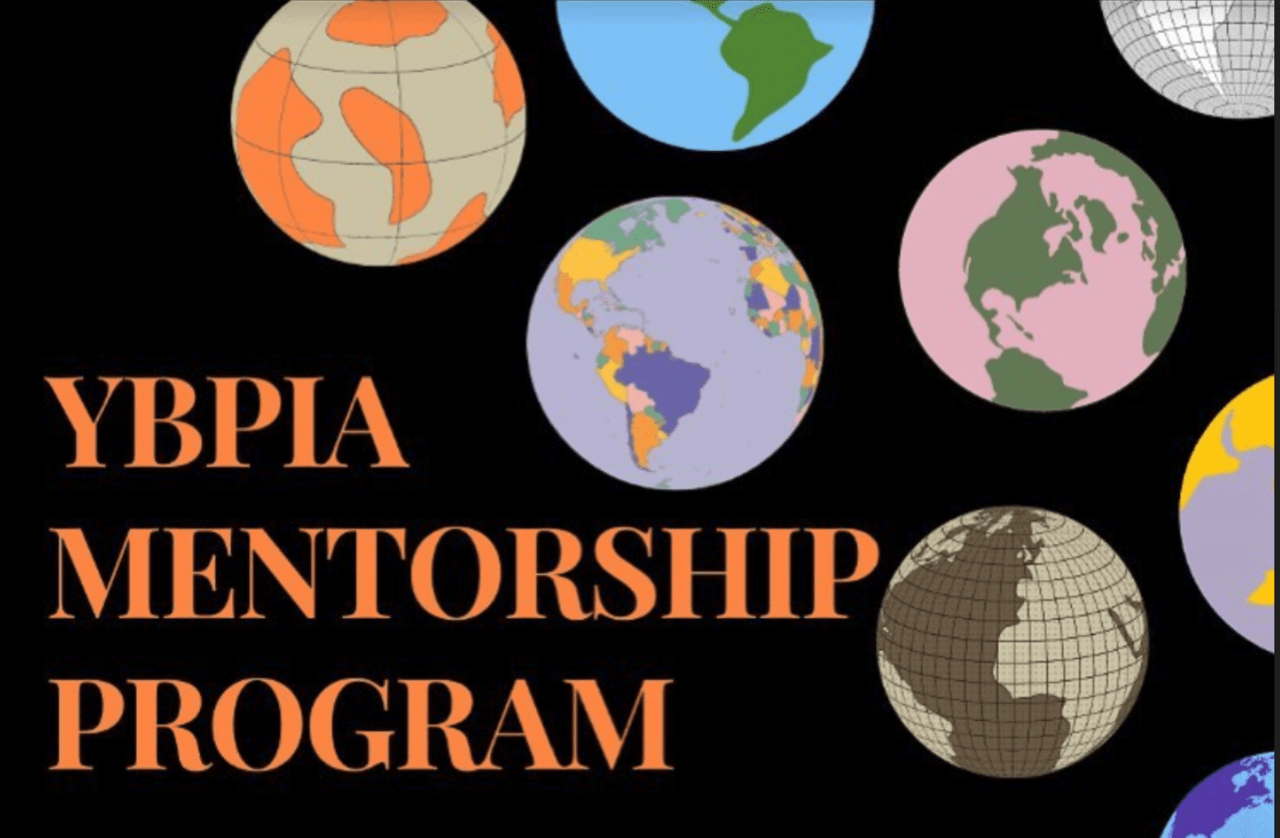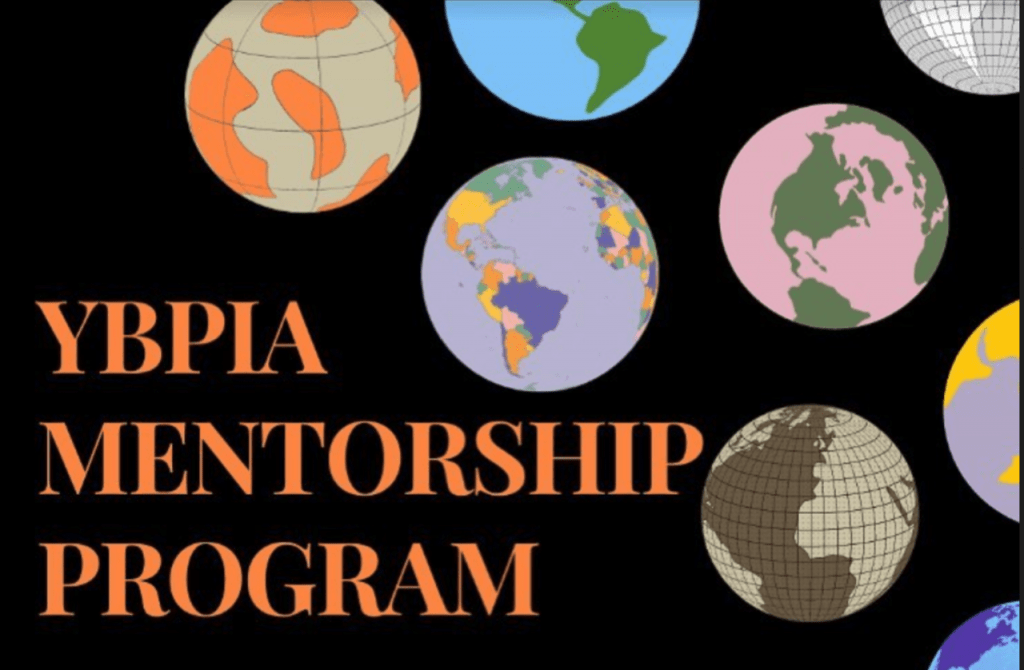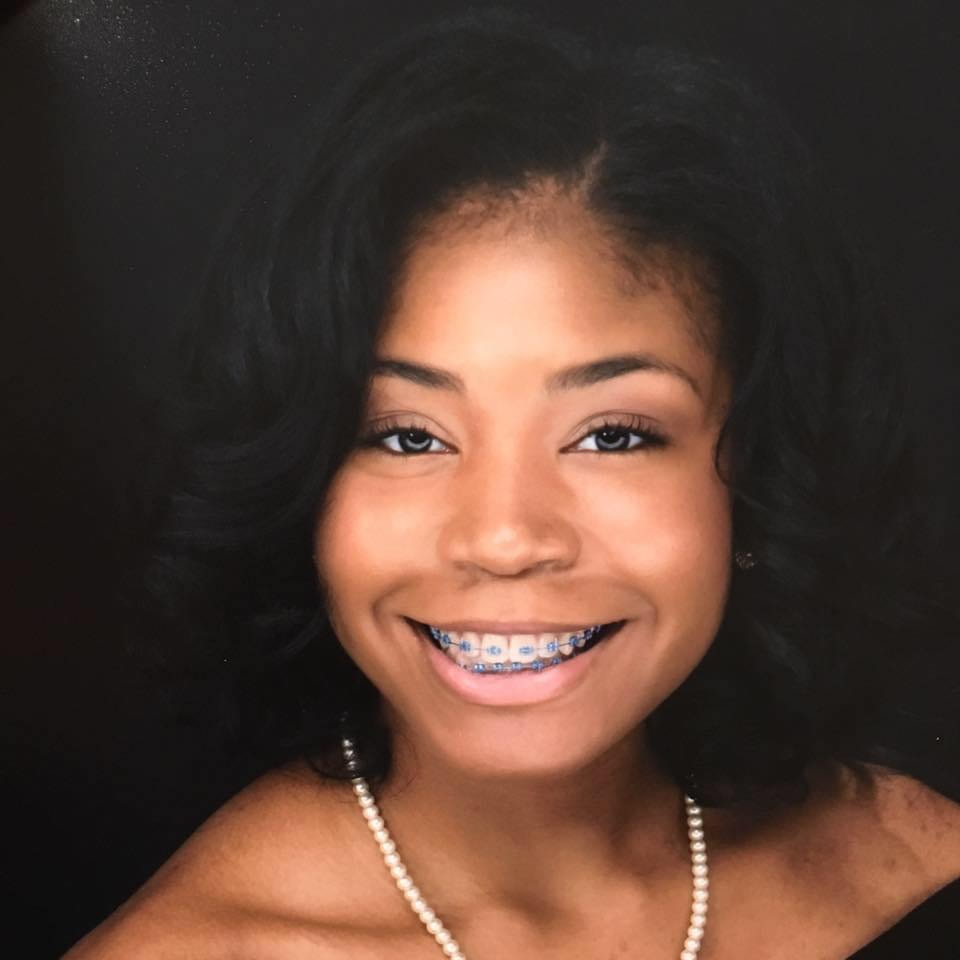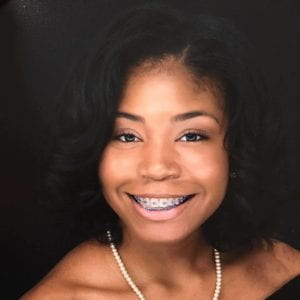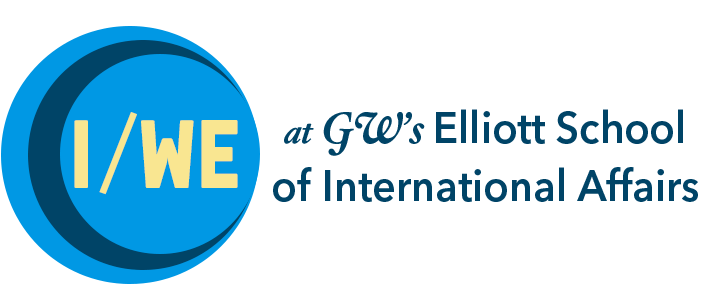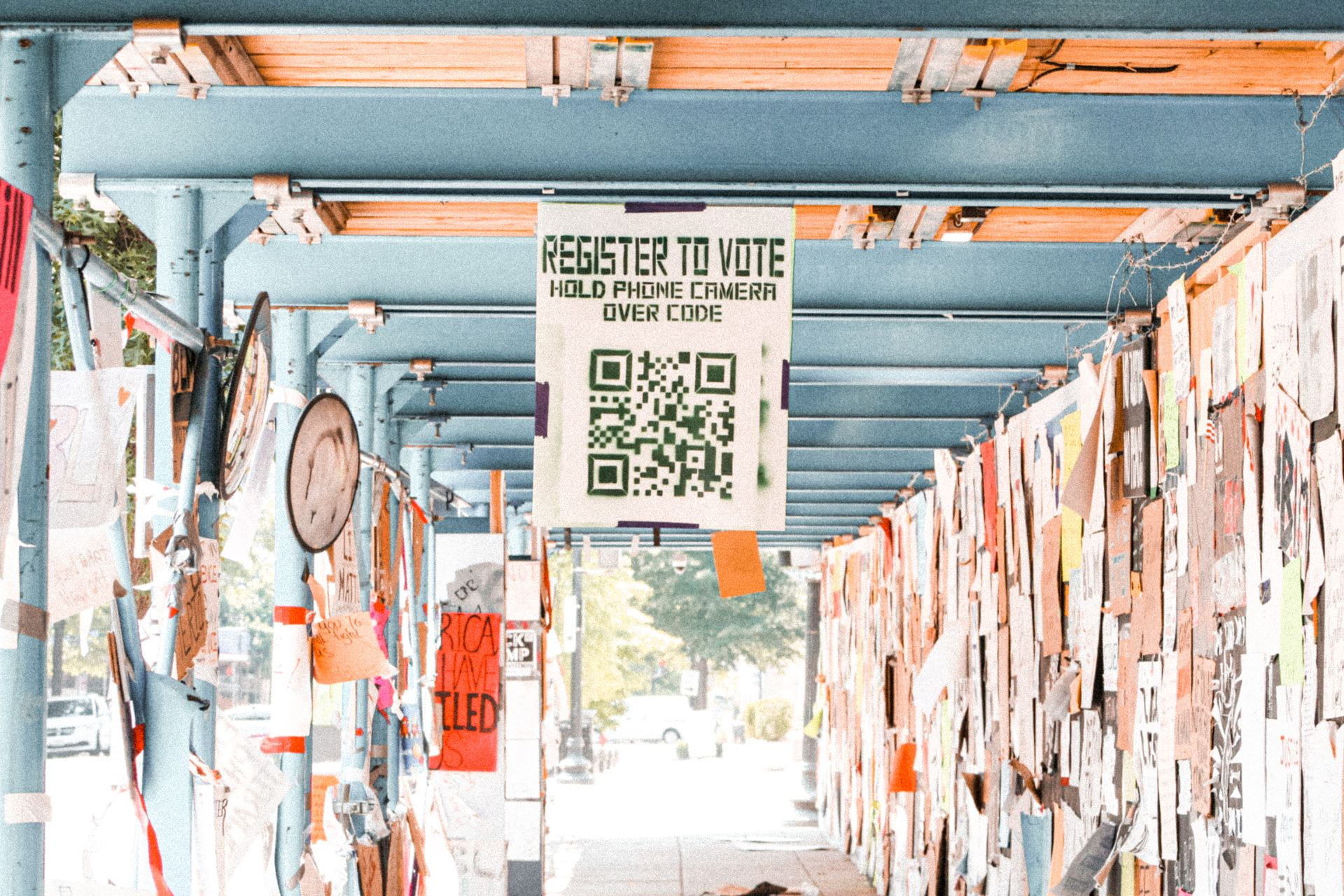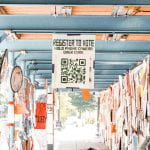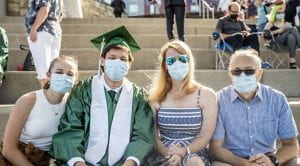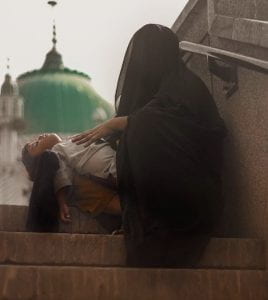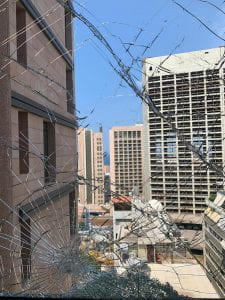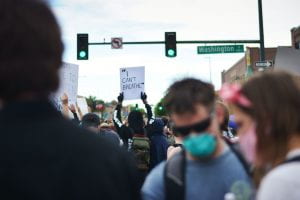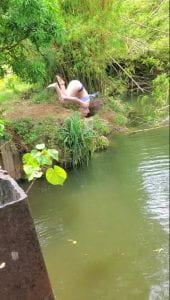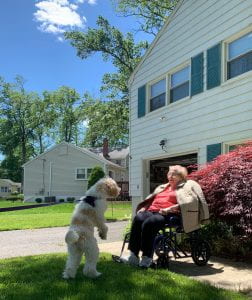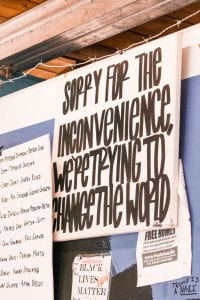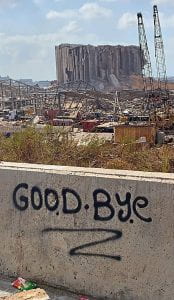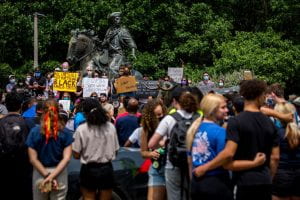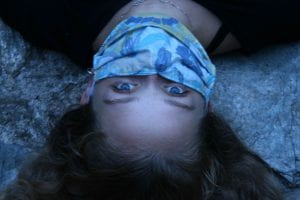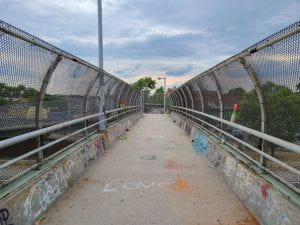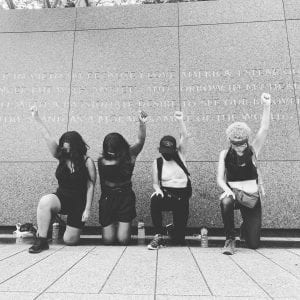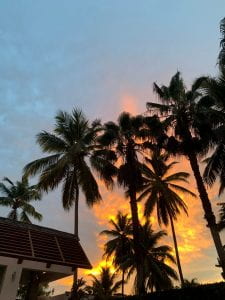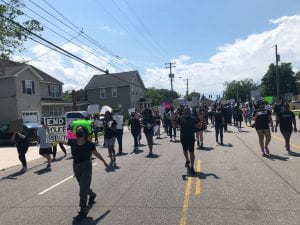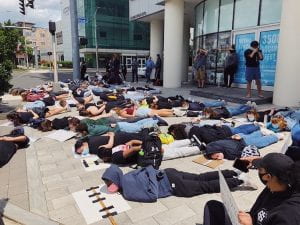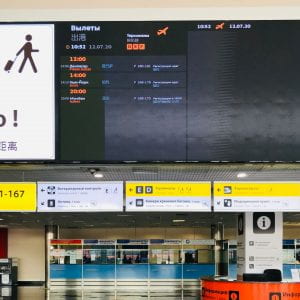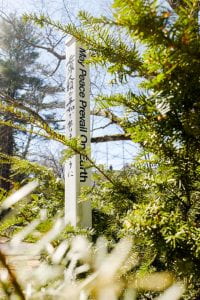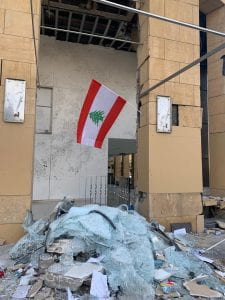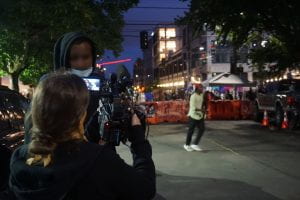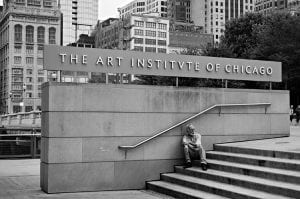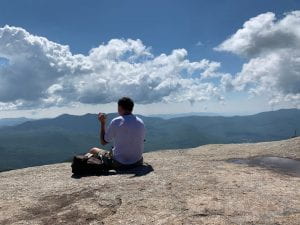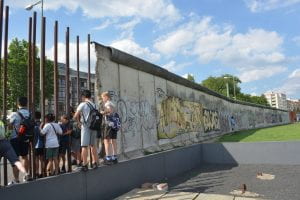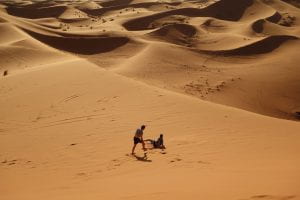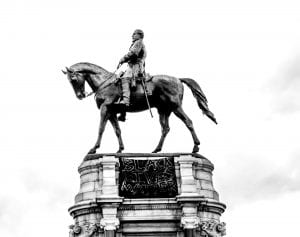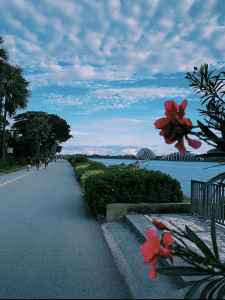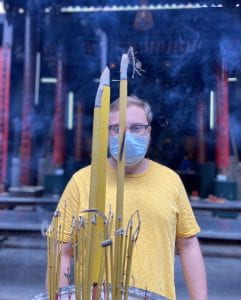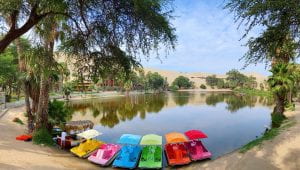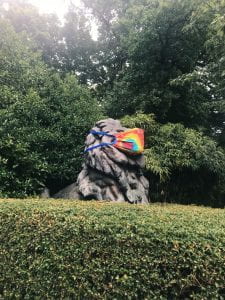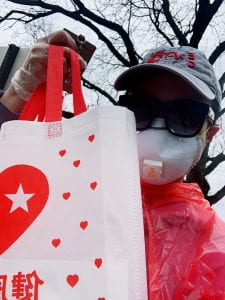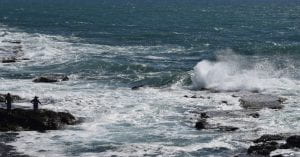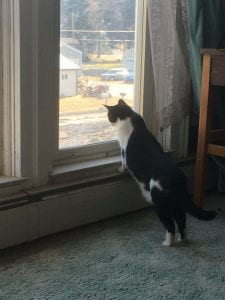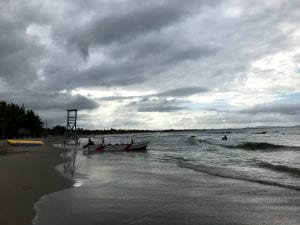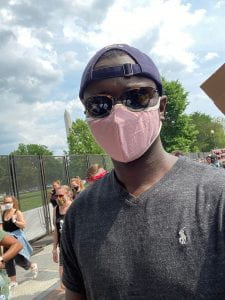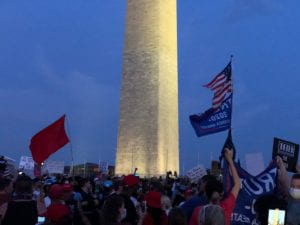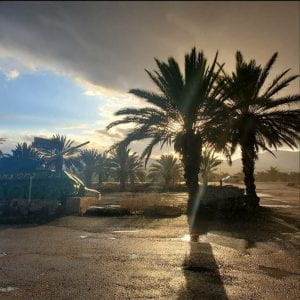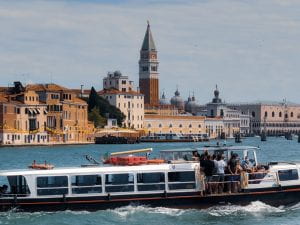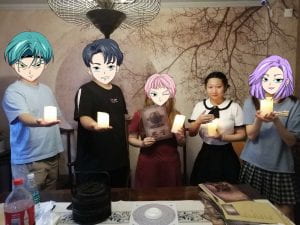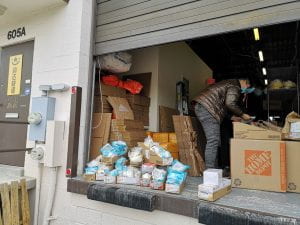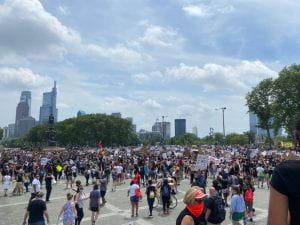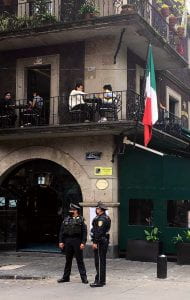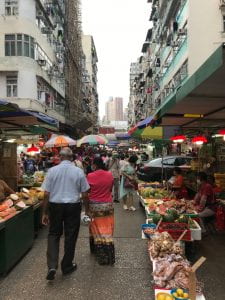“Designed to prepare students to tackle a range of global challenges ranging from cybersecurity to space policy, the George Washington University Elliott School of International Affairs’ Bachelor of Science in International Affairs (BSIA) degree program allows students to integrate higher-level STEM credits into the study of their core international affairs curriculum…” Read the full article in GW Today
Faculty Book Launches
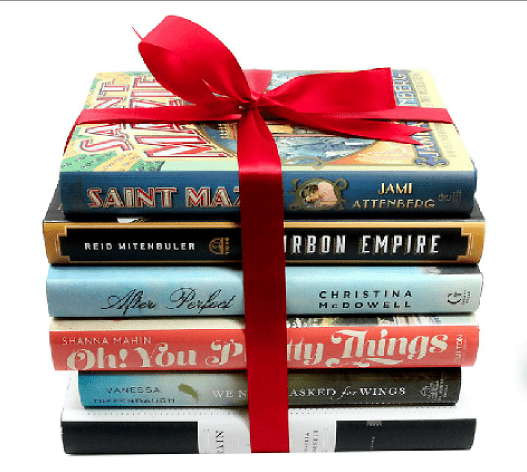
Seeking interesting gift ideas for friends and family during the holiday season, or just wanting to give yourself the gift of a good read as winter settles over the campus and many remain holed up at home? Look no further than the latest publications from our esteemed faculty.
Michael Brown, Chantal de Jonge Oudraat et al, The Gender and Security Agenda
“This refreshingly engaging book with multidimensional perspectives is a must-read for all. It is an outstanding contribution to global discourse on women’s equality and empowerment in the crucial area of peace and security…” —Ambassador Anwarul K. Chowdhury, Former Under-Secretary-General of the United Nations and President of the UN Security Council in March 2000
Alexander Dent, Digital Pirates: Policing Intellectual Property in Brazil
“Digital Pirates is an insightful and often beautiful exploration of digitization as a dissolving agent for older cultural forms, a catalyst for new ones, and a context for reconsolidating the boundaries that define markets, institutions, laws, and publics.”—Joe Karaganis, Columbia University
Ben Hopkins, Ruling the Savage Periphery Frontier Governance and the Making of the Modern State
“This is an ambitious and important book. The concept of ‘frontier governmentality’ is a very engaging and largely persuasive idea with broad applicability…”—Andrew Graybill, author of Policing the Great Plains: Rangers, Mounties, and the North American Frontier
Vincent Ialenti, Deep Time Reckoning How Future Thinking Can Help Earth Now
“Imagine yourself as an ancestor of people living ten thousand or a hundred thousand years in the future. Ialenti focuses on these unfathomable timescales through the lens of radioactive waste and illuminates how readjusting our time horizon underlies our survival.” —Ruth DeFriesDenning Family University Professor of Sustainable Development, Columbia University; author of What Would Nature Do?
Sean Roberts, The War on the Uyghurs: China’s Internal Campaign against a Muslim Minority
“This is the backstory behind one of the biggest stories in China—the incarceration of more than one million Uyghurs in a dystopian network of what are claimed to be reeducation camps. Who the Uyghurs are and how they came to be classified as terrorists … could not be more timely.”—Barbara Demick, former Beijing bureau chief, Los Angeles Times, author of Nothing to Envy
Nilofar Sakhi, Human Security and Agency – Reframing Productive Power in Afghanistan
“…the scholar and activist Nilofar Sakhi illuminates the failure of many development programs to transform Afghan communities and points the way to a more effective approach based on local creativity, productive power, and community control.”— Richard Rubenstein, George Mason University
Eric Schluessel, Land of Strangers: the Civilizing Project in Qing Central Asia
“Through this theoretically rich exploration of Qing philosophy and practice of colonial rule, we see how violence and forced intimacy shape enduring group identities in Xinjiang…Schluessel uncovers the interactions of everyday life among colonizing Chinese, intermediaries, and colonized Uyghurs in late Qing Xinjiang.” —Marianne Kamp, author of The New Woman in Uzbekistan: Islam, Modernity, and Unveiling Under Communism
David Shambaugh, China and the World and Where Great Powers Meet
“China and the World is an impressive volume on a vital subject at a critical time. For the coming generation of (American) students, China will be the single most important international topic in their textbooks; relations with this dynamic behemoth will profoundly affect their lives as well as the world.” — Winston Lord, Former US Ambassador to China
“What does great power rivalry mean? David Shambaugh provides an engaging and readable account of how the US-China competition is playing out in its Southeast Asian epicenter. One could not ask for a more thoughtful and experienced guide to this fraught relationship.” — Joseph S. Nye, Jr., Harvard University and author of Do Morals Matter? Presidents and Foreign Policy from FDR to Trump
Robert Sutter, Chinese Foreign Relations: Power and Policy of an Emerging Global Force, (5th edition)
“Robert Sutter’s book is the best comprehensive introduction to the background, trends and dynamics, and implications of contemporary Chinese foreign relations available…It is an indispensable guide to a topic of foremost importance in world affairs today.”— Alice Miller, Stanford University
An Arctic Ally in the Nation’s Capital
For a campus built upon land once known as a malaria-infected industrial hub, it may come as a surprise that the Elliott School and GW are collaborating on no fewer than ten research grants related to the Arctic region. Dr. Robert Orttung and his colleagues are guiding projects examining topics as diverse as gender equality in the Arctic, the connection between Arctic wildfires and disease at high latitudes, the evolution of traditional Arctic communities under the stress of climate change, the opportunities and challenges for Arctic tourism, and long term data gathering and analysis of the Arctic permafrost. The Elliott School Arctic team includes Marlene Laruelle, Nikolay Shiklomanov, Dmitry Streletskiy, Vera Kuklina, and Marya Rozanova.
According to Orttung, “the Elliott School has been successful in getting these grants because of our ability to work across campus with colleagues in a wide range of disciplines. Funders like the National Science Foundation are now encouraging the establishment of large multidisciplinary teams to tackle complex problems like those found in the Arctic. Collaboration is essential in bringing together a wide range of different types of knowledge, including natural science, engineering, and social science. The key is to be able to collect and analyze large amounts of quantitative and qualitative data.”
Elliott School alumni have been getting involved in the Arctic region as well. James DeHart, MA ’91, was recently appointed U.S. Coordinator for the Arctic Region for the State Department. DeHart is a career member of the Senior Foreign Service, holds the rank of Minister Counselor and brings with him 28 years of significant experience in regional security, civilian-military cooperation, and international negotiations. He most recently served as Senior Advisor for Security Negotiations and Agreements where he led the negotiation of the status of forces, defense cooperation, and burden-sharing agreements worldwide.
According to DeHart, “the logic behind the new position of the U.S. Coordinator for the Arctic Region is to protect U.S. interests through a balanced approach to the region, giving attention to security, sustainable economic growth, and continued cooperation among Arctic States to strengthen the rules-based order. As a result of dramatic environmental changes, the Arctic region is becoming more accessible to actors old and new. Russia and China are increasingly active, generating new risks in this era of great power competition. My job is to advise the Secretary and Deputy Secretary of State, ensure we are well coordinated within the State Department, and work across the U.S. Government to align resources with our policy goals. I also work closely with governments in the region, as well as relevant organizations and local communities, to try to maintain the Arctic as an area of low tension and high standards so that it develops in a way that’s supportive of our interests and those who live there. Our office is very small – sparsely populated, like the Arctic! – so we are plenty busy.”
It’s becoming more evident that future practitioners of international affairs will have to be well versed in questions of the environment and sustainability. The climate change affecting all of us is now most visible in the Arctic, where temperatures are rising faster than other parts of the planet. GW’s and the Elliott School’s faculty, students, and alumni are at the forefront, addressing these important issues, not only for the United States, but for the world.
Spotlight on the Diversity and Inclusion Council
Launched in January 2018, the 24 members of the Elliott School’s Council on Diversity and Inclusion are composed of students, faculty, and staff. The council’s purpose is to advise the school’s leadership on specific activities and initiatives to implement related to diversity, equity, and inclusion. We recently caught up with Gillian Villarroel, a first-year student pursuing a major in International Affairs. As the council’s youngest member, we asked what inspired her to get involved.
Q. How did you hear about the diversity and inclusion council at the Elliott School?
In high school, knowing that GW is a Predominantly White Institution (PWI), my equity and excellence counselor advised me to seek opportunities where I could connect with the multicultural community in college. As an Elliott School student, I signed up for the Diversity and Inclusion Newsletter. I received the newsletter promoting the council and applied!
Q. What made you want to be a part of it?
I wanted to be a member of the council because I have a lot of passion and drive for the goals of the diversity action plan. I wanted to bring my values of hard work, confidence, and ambition to my school community. I grew up living in two worlds and learned how to embrace my Bolivian heritage within my American lifestyle. I felt my background could help to inform discussions and programming. I was very excited when I received my acceptance email!
Q. Have you had previous experiences either negative or positive that make the issue of diversity and inclusion important to you?
Growing up my life was surrounded by the realities of diversity and inclusion. Often, I felt like an outsider in school trying to find a community where I could feel a true sense of belonging. As a minority student, it seemed like a negative thing at first, but as I grew, I learned to love my culture. I was able to perceive things through the lens of my heritage that perhaps my peers weren’t able to.
In my experience as an intern in my county’s school and community relations office, I did a lot of event planning. I gained experience with voicing my opinions. I have participated in different advocacy days and programs, both in Washington D.C. and Virginia, and I have found a true passion for advocacy.
Q. What are your personal priorities to accomplish as part of the council?
Sometimes, finding opportunities can be a struggle because I don’t see myself reflected in the programs I wish to participate in. A personal priority of mine is to continue to support the diversity and inclusion initiatives at Elliott by providing outreach to underrepresented students who feel the same way. Being in the U.S. capital, there is so much opportunity, but as minorities, it can be a struggle to feel you are capable enough to participate. I want to be able to provide minority students with confidence. I envision in doing this, that Elliott not only becomes more diverse, but our entire community benefits.
Q. What, if anything, has the council done thus far that makes you feel it is making a difference at GW?
The council has truly been such a blessing, I look forward to going to every meeting. I feel that I am able to voice my opinion in an open space where I can be heard. The council currently has many working groups meeting in order to achieve goals and initiatives that are needed in the community. I am fortunate enough to be a student co-lead for the working group on student retention and recruitment. Good things take time, but I will feel that the council’s work has made a difference at GW.
More about Gillian Villarroel
Gillian is the first-year class representative for the Elliott School Council on Diversity and Inclusion as well as a Student Co-lead for the student recruitment and retainment working group. Gillian is a part of multiple student organizations on campus, including the Organization of Latin American Students (OLAS) where she is a freshman representative, the League of United Latin American Citizens (LULAC) where she is a marketing director, and IGNITE where she serves as a freshman representative. She is a member of the Dean’s Council for Multicultural Recruitment, a part-time barista at a coffee shop, and serves as an AmeriCorp member for Jumpstart. Gillian enjoys advocating for those in her community, reading, traveling, and a good cup of coffee!
YBPIA Launches Mentorship Program
The Young Black Professionals in International Affairs (YBPIA) student organization is proud to announce the launch of their Mentorship Program. They are looking for graduate students, alumni, and early to mid-career professionals in international affairs to serve as mentors for Elliott School undergraduate students. You can learn more about the program and apply through YBPIA’s Linktree page, which includes application forms for undergraduate and graduate students, as well as alumni.
All Elliott School students and alumni are also invited to YBPIA’s first Student-Alumni Mixer, which will take place on Zoom on November 11. Participants will meet the student members of YBPIA and connect with alumni interested in their efforts through breakout rooms and conversations. YBPIA will also discuss their plans for the mentorship program.
Founded this summer, Young Black Professionals in International Affairs is a student organization committed to enhancing African and African diaspora (African-American, Afro-Latinx, Afro-Caribbean) perspectives, conversation, participation, and scholarship in both the Elliott School of International Affairs and the field of international relations overall — through mentorship, professional & academic development, and community. For questions or concerns, please email YBPIA at ybpia@email.gwu.edu.
Young Black Professional in International Affairs
Young Black Professionals in International Affairs (YBPIA) is a new and promising student organization committed to enhancing African and African diaspora perspectives, conversation, participation, and scholarship in the field of international relations through mentorship, networking, awareness, and on and off campus events. Read the exclusive interview with Elliott School sophomore and founder, Hannah Jackson.
What made you want to start a student org for young black professionals in IA?
I am a strong believer in the affirming power of representation. Far too often, communities of color, particularly those in the black community, don’t see enough people who look like them in the careers that they aspire to. That reality is glaringly true within the field of international affairs. Only 6 percent of the Elliott student population are black students, and according to Foreign Policy Magazine, only 8 percent of International Relations scholars are black. With so few represented, it can be very easy to internalize the stereotypical representations that are being presented to you.
The goal of YBPIA is to affirm, value, and amplify the voices and concerns of black students in the Elliott School of International Affairs on and off campus, as well as strengthen and encourage one another in what can be an alienating field. We are committed to providing a supportive, enriching environment for fostering an intellectual community and facilitating the development of both African and African diaspora studies and thought.
Our target membership is any student in the Elliott School of International Affairs who is passionate about the purposeful inclusion of African and African perspectives in and outside of the classroom, and who is interested in improving the overall experience for Black students in the Elliott School and upending the current paradigm of who can and cannot excel in the field. This includes not only Black students and young professionals, but other marginalized communities within the field such as that of the Latinx, Middle Eastern, and Asian communities.
What has the interest level been in the organization so far? It’s new, so I realize it is just getting off the ground.
YBPIA was officially registered as a student organization in July 2020, and I have been gratifyingly overwhelmed by the amount of support that we have received from African and African Diaspora undergraduate and graduate students, as well as alumni. In addition, we’ve received support via social media promotion by other student organizations and various schools and departments within the university.
Have you always been an “organizer,” even in high school?
I would not say that I have always been an “organizer,” per se, but I have always been a leader in both my school and community. I was very active in high school as a Student Ambassador, an active member on the Student Diversity Leadership Council, a general Officer of Model United Nations, an Advocacy Director and Vice President of Girl Up United Nations, and a member of the Rho Kappa Social Studies National Honor Society.
However, the most rewarding way that I have made a difference in my community is through the non-profit I started in 2018. I decided to channel my passion for human rights to a nearby community in Clarkston, GA. Clarkston is known as one of the most diverse communities per square mile in the US and is home to thousands of refugees speaking over 60 different languages. I chose to mentor and tutor refugee girls through an after-school program I founded, Because I Am A Girl Inc. Through this program, I had the opportunity to encourage and empower the girls academically and socially, through tutoring, field trips in the community, and mentorship. I received a $1,000 grant from Gas South to jumpstart my project.
Using the same leadership skills I learned in high school, I became the Freshman representative of Girl Up GW and was Vice President of Girl Up GW by my second semester. I also had the opportunity to become an active member of the Elliott School Council on Diversity and Inclusion as a freshman, and I am now on the Leadership, Ethics, and Practice (LEAP) Initiative Student Advisory Council.
What kinds of activities do you hope the student org will engage in?
Young Black Professionals in International Affairs will engage in professional, academic, and community events. We are co-sponsoring two events in the month of September, both on September 23: one with GWU Sigma Iota Rho and the GW Institute for African Studies on “Decolonizing the Narrative of Africa”; and the second with Elliott School Alumni Programs, Columbian College Alumni Programs, GW Athletics, and the LEAP Initiative on sports diplomacy titled, “Sports, Ethics, and Black Lives Matter.”
Anything else you would like to add?
In the words of Ambassador Bonnie Jenkins, “if policy is being made in Africa, the Middle East, or in Asia and people from that region or culture are not present in the room, I do not see how that policy wouldn’t be enriched with their perspective.” The field of international affairs can only progress further with the acceptance and understanding of those who might bring new viewpoints into the field’s lexicon.
If you are interested in learning more about YBPIA or getting involved, please reach out to us at ybpia@gwu.edu and check our Linktree for more information, https://linktr.ee/gwuybpia!
International Women of Elliott

The Elliott School this fall will launch a new leadership group exclusively for women. The GW International Women of Elliott (I/WE) is designed to raise the global visibility and connectivity of female leaders in the Elliott community.
I/WE’s mission is to “celebrate the many significant successes of the Elliott School’s diverse alumnae across industries, as well as to establish a powerful and influential global network of Elliott women: alumnae, parents, industry leaders, and students,” says Susan Stautberg, MA ’70, co-chair of I/WE and Governance Advisor for Atlantic Street Capital.
Julie Monaco, BA ’85, an executive at Citi and vice chair of the Elliott School Board of Advisors, will also co-chair I/WE. Joining Stautberg and Monaco on I/WE’s executive team are Elliott School Interim Dean Ilana Feldman and Joe Strodel, assistant vice president for development and alumni relations. Dean Feldman shared her full support for the mission of the group stating, “as a woman who leads, I aspire to help other women attain their leadership goals. With great enthusiasm, I look forward to working with this terrific group.”
I/WE comprises three membership circles: the Executive Circle, the Leadership Circle, and the Young Alumnae circle. Members of these groups will work together to organize programs that lift up the voices of female leaders, provide personal guidance to Elliott students who are women, and expand scholarship and fellowship support for Elliott women students.
Be sure to keep an eye out for the launch of International Women of Elliott in October with more events to come later in the year!
To learn more on how to join I/WE, please visit our website to fill out the interest form, and we will contact you with membership details.
Photo Contest Gallery 2020: From Pandemic to Protest
From Pandemic to Protest
First Place
Honorable Mentions
Gallery
A Message from New Interim Dean Ilana Feldman
 Dear Elliott School Community,
Dear Elliott School Community,
When I agreed to serve the Elliott School as Vice Dean, I could not have anticipated that a year later I would be taking on the role of Interim Dean—as the School, the University, and the world grapple with the effects of a global pandemic. I am honored to have the opportunity to serve our Elliott School community at this challenging time.
I am consistently impressed with the skill of all the faculty and staff committed to support the educational, research, and public policy mission of the Elliott School. Your dedication to excellence gives me the confidence to know that together, we can navigate this difficult time. I will do everything I can to support you and all the members of our community.
Dean Brigety’s leadership over the past five years has left a strong legacy. As a result of his focus on inclusive excellence, we have an increasingly diverse faculty and deepened support for students. We have a strengthened commitment to putting ethics at the center of international affairs education. Our faculty are engaging in research that tackles the most pressing issues of our time.
As the coronavirus pandemic hit us in March, everyone pivoted with remarkable speed—adjusting to learning and teaching in new online modes, hosting and participating in virtual academic events, and doing the work to keep the school operating optimally in sub-optimal times. That people managed this transition so well should not cause us to minimize how difficult it has been.
In addition to coping with the burdens of our new environment, we miss each other. We miss conversations in the hallway, the intensity of the seminar room, the energy we get from engaging with each other. Our greatest strength is in our community. Together we are more resilient. And together we are meeting the challenge.
My goals for the Elliott School during the period I am interim dean are first, to carry forward the good work that has been put into motion over the past few years. Second, to ensure that we emerge from the financial challenges that lie ahead, a stronger and more vibrant school of international affairs, and third, maintaining our commitment to build a more diverse, welcoming and inclusive learning community.
I look forward to working with you all for the benefit of our school and its mission to develop the next generation of global leaders.
Stay safe and well. I look forward to seeing you in the fall!
Ilana Feldman,
Interim Dean, Elliott School of International Affairs




